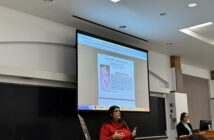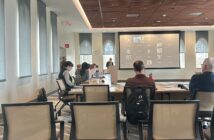On Friday, June 12, 2020, the Lehigh University community was made aware that the U.S. Department of Education would begin an investigation into the school’s compliance with the Clery Act, also known as the Student Right-to-Know and Campus Security Act of 1990.
The investigation involves a review of both the Lehigh University Police Department’s policies and the administration’s operational procedures. While there is still no definite answer as to why these reviews have gone underway, there have been a string of administrative misconduct events throughout the past two years that could play a part in these happenings.
What is interesting to note is that the Clery Act was actually named after a Lehigh University student who was raped and murdered in her dorm in 1986, and questions arose over who in the Lehigh and Bethlehem communities knew what prior to the incident that could have prevented the death.
As the student newspaper, we find it is our responsibility to hold those in power to account in all forms. And lately, there’s been a lot of deception, hypocrisy and bad news coming from our administration. We won’t turn a blind eye to it.
On Jan. 28, 2020, President John Simon sent an email to the entire campus community instituting a “pause” on much of Greek life out of concern for the fact that the Greek community acted with “offensive and unhealthy behavior… indicating a blatant disregard for the rules and respect.” He called upon not only the leaders within the Greek community but also all members of its various organizations to “take a leading role in changing the culture of Greek organizations at Lehigh.”
In so doing, the administration called upon a portion of the student body to hold themselves and their peers accountable, asking them to make a comprehensive plan to make such significant changes.
However, after sharing the news to Lehigh students and their families about the re-opening of campus for the fall 2020 semester on June 10, just one day later, the administration in a separate email told staff and faculty a very different reality for what on-campus life will look like. The administration screamed, “We’re open” to students on June 10 while whispering to faculty on June 11 that classes this semester will include a “significant amount of online learning in every course.”
The Lehigh University administration is in a constant state of contradiction.
In one vein, they are stating that student accountability must come from within, rather than be taught. There is definitely something to be said about peer-to-peer learning and growth.
However, they then in turn fail to do the same thing themselves that they so desperately asked of their own students.
While yes, students in college are functioning as young adults, they can’t be expected to know all the answers and how to act appropriately 100 percent of the time. For many, this is their first time living away from home without a parent or guardian being by their side, assisting them in all their decisions. College is very much a trial-and-error period for students, and they should be able to rely on their own administration to set the right example of how to behave and maintain accountability.
Similarly, many students come to college for the ability to not just grow as a student and young adult, but also into a more diversified version of themselves. They leave their comfortable community bubbles and home lives behind with the promise of experiencing new perspectives academically, interpersonally and societally.
“The Lehigh University administration is in a constant state of contradiction.”
-The Brown and White Editorial Board
Members of the Lehigh community who were around campus during the beginning of the Black Lives Matter movement shared artwork and propaganda on South Mountain, beginning on June 2.
Within a 10-day period, these images were removed twice, during which two emails from Simon and Board Chairman Kevin Clayton were sent condemning hatred and bigotry. The second email followed an open letter imploring Simon and Clayton to do more to combat racism.
You can’t make it up.
These actions inhibit students’ abilities to broaden their understanding of social justice issues through their own campus’ lens and express themselves. These images were peaceful, were not inciting violence and were drawn on a rock — not a building of some kind — and contrast sharply with other painted rocks along the mountain.
These emails provided a sense of understanding and a strive to do better for the community, yet the actions thereafter seemingly do the opposite.
These three examples are just a handful of poor behaviors Lehigh students have witnessed during their time as undergraduates.
Actively combatting the Black Lives Matter movement, spreading misleading reopening information to different areas of the community and a national investigation on the university’s compliance with education laws create a sense of uneasiness, anger and fear for students, families, faculty and staff alike.
The concerns related to administrative behavior are addressed in open, public record letters and lawsuits. These issues have stretched far beyond the niche realm of student reporting.
Many students are beginning to question the worth of their degree from a seemingly corrupt institution, while faculty and staff are questioning the ethics and morals of their workplace.
This is a place for young adults to grow. It’s a bastion of intellect and knowledge. It’s an incubator of learning and civil discourse. It’s a workplace for hundreds of people with families and children of their own. Lehigh, we need to do better.
Students should not have to beg an administration to hold themselves accountable for their own actions. How are students supposed to behave in a way that represents all that the university has built itself to value, when its own current administration cannot lead by example?
Consider this an open letter as we ask for you, Lehigh administrators, to consider your actions and take your own values into consideration. Hold yourselves to the same standards that you ask of your own student body so that the campus community as a whole can work toward creating a better environment for all involved.






Comment policy
Comments posted to The Brown and White website are reviewed by a moderator before being approved. Incendiary speech or harassing language, including comments targeted at individuals, may be deemed unacceptable and not published. Spam and other soliciting will also be declined.
The Brown and White also reserves the right to not publish entirely anonymous comments.
1 Comment
To the incoming Provost Nathan Urban on the behalf of current students: we need you to right this ship.